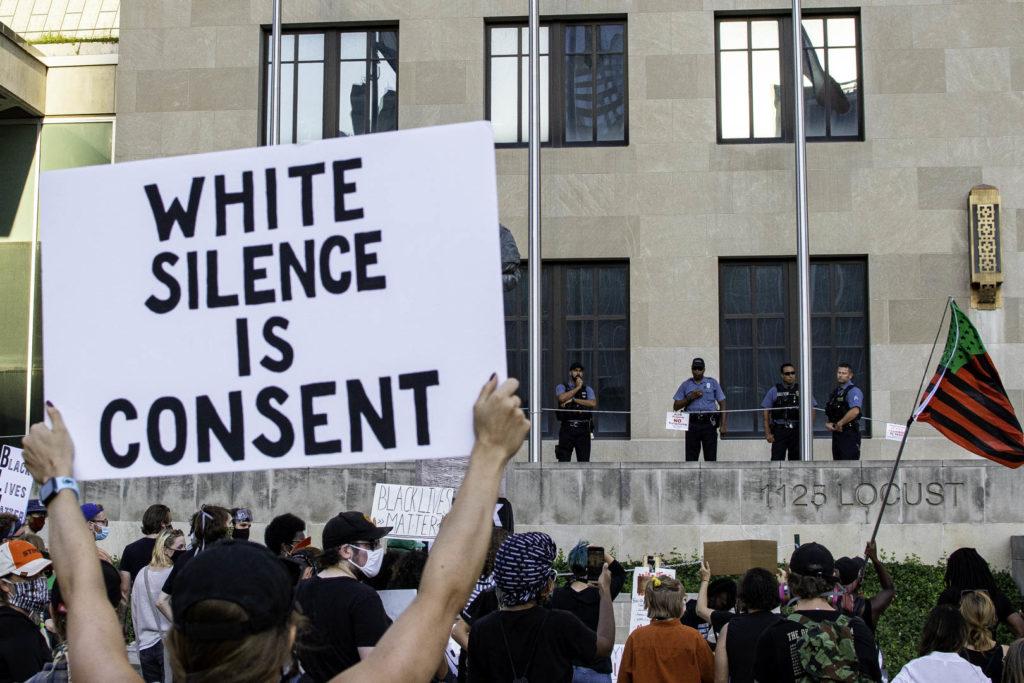Hundreds took to the streets of Kansas City on Sept. 4. Dubbed The March on Kansas City, the rally took place in honor of Dr. Martin Luther King Jr.’s March on Washington in 1963.
Led by local chapters of the Southern Christian Leadership Conference (SCLC), The NAACP and the Urban League, marchers peacefully protested alleged acts of racism and brutality on the part of the Kansas City Police Department (KCPD) and called for the removal of Police chief Rick Smith.
The march began downtown in front of City Hall and ended at the Liberty Memorial, where protestors gathered to listen to speeches by the organizations that hosted the event.
Brandon Henderson, UMKC’s Student Government Association president, was among the speakers at the lawn of the Liberty Memorial.
“I am not here on behalf of myself,” Henderson said. “I’m here representing the thousands of UMKC students, both current students and alumni, who have been fighting the fight for racial
justice since the university’s founding in the 1930s.”
He went on to discuss the protests he and many other UMKC students attended in May and throughout the summer, and their treatment at the hands of KCPD.
“What my classmates and I endured earlier this summer was just the beginning of a concentrated effort by the Kansas City Police Department to intimidate those of us who had the audacity to demand an end to systematic racism and police brutality,” Henderson said. “Their tactics included the indiscriminate use of pepper spray, aerial surveillance of protestors, and the deployment of tear gas.”
Speakers at the march also stated the importance of voting, emphasizing that silence is complicity. A voter education and registration booth was on the lawn of Union Hill for protest attendees to learn about voting.
“We are in this until the end,” prominent Black attorney and activist Stacy Shaw said. “We will not tolerate fear among us anymore. We are going to leverage our collective power and vote, and that level of power only comes with unity.”
The march was peaceful and no vandalism or violence occurred. Additionally, there were no counter-protests, and police officers were sparse.








